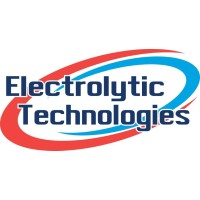
Groupe Alco-TMI
Le Groupe Alco-TMI est spécialisé en conception, fabrication, installation et entretien d’équipements dans les domaines des appareils sous pression, de la chaudronnerie, de la tuyauterie et de la mécanique pour l’ensemble des secteurs industriels. Depuis 1988, l’entreprise s’appuie sur une équipe d’experts motivés et engagés à satisfaire ses clients avec agilité et proximité. Leur entière satisfaction découle de notre expertise et de nos normes élevées de qualité et de sécurité. Notre approche est proactive, collaborative et respectueuse de nos employés, de nos clients et de nos valeurs. ------------- The Alco-TMI Group specializes in the design, manufacture, installation and maintenance of equipment in the fields of pressure vessels, boilermaking, piping and mechanics for all industrial sectors. Since 1988, the company has relied on a team of motivated experts committed to satisfying its customers with agility and proximity. Their complete satisfaction stems from our expertise and our high standards of quality and safety. Our approach is proactive, collaborative and respectful of our employees, our customers and our values. Our head office and main facility is located in Alma, Lac-St-Jean, Quebec






